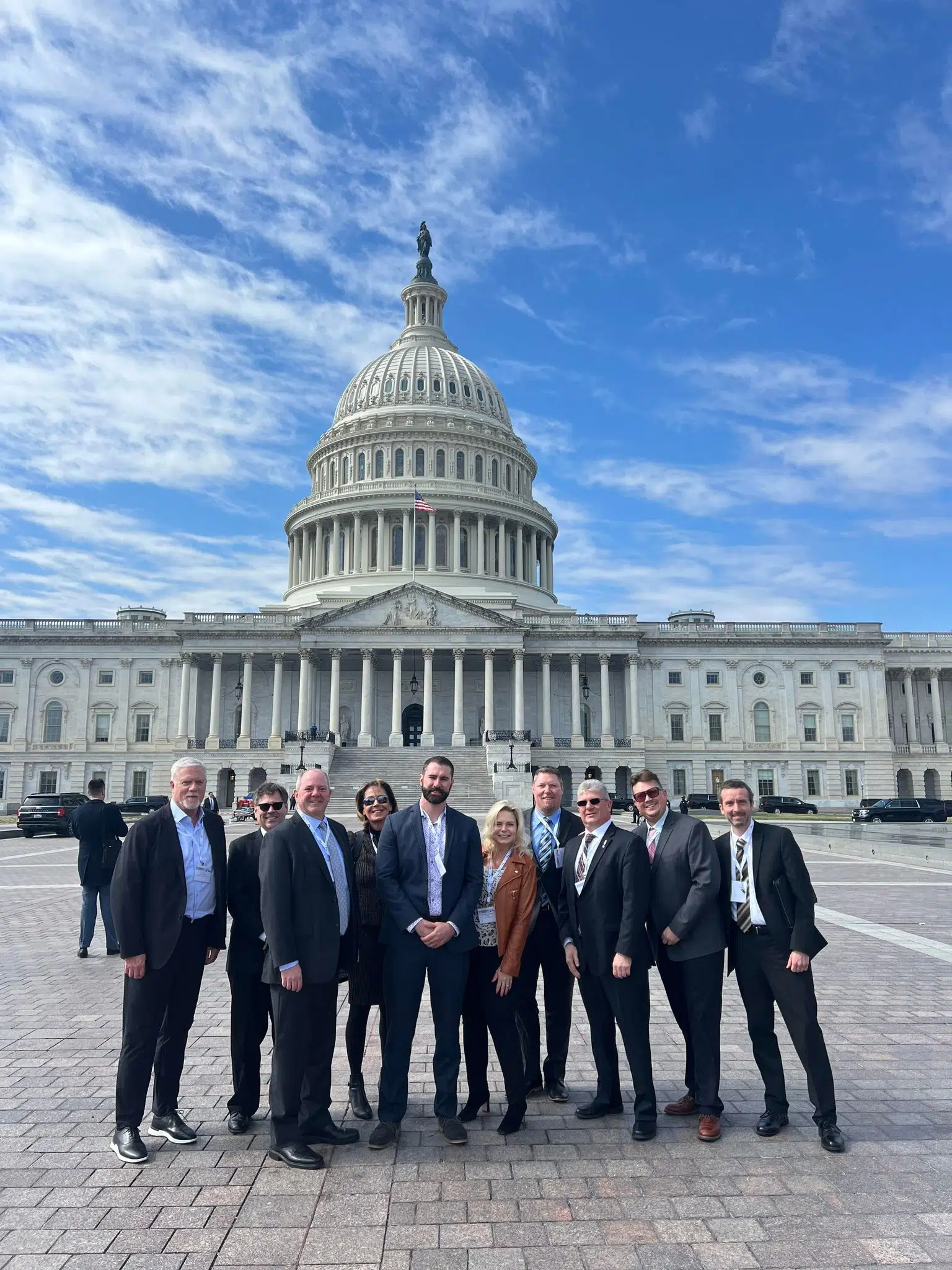
Since the very first broadcast in 1920, people have been able to tune into their favorite radio station and listen to music, sports, and local personalities for free.
In fact, WOMT Radio has been doing just that since 1926. But, that is being put at risk by people in the music industry.
Terry Stevenson, the Vice President of Seehafer Broadcasting in Manitowoc, along with other members of the Legislative Committee with the Wisconsin Broadcasters Association recently made a trip to Washington DC where they spoke with federal legislators about issues that Wisconsin broadcasters face.
One of those is in regard to the Local Radio Freedom Act.
“The music industry, the artists themselves and their lobby groups, they feel that they are not being paid enough from their record labels for their music,” Stevenson explained. “So, they are going after broadcasters and they want us to pay a performance tax.”
That tax in on top of the licensing fees that radio stations pay to the record labels already.
Stevenson says that would cripple local radio stations.
“It would harm a lot of radio stations, small-town stations, like us, if we have to now pay this huge new fee on a monthly, quarterly, annual basis for music that we are already paying licenses for,” he said.
Stevenson, who has been in radio since he was 15 years old in 1999, also explained that the only revenue for radio stations is to sell time on the air, which comes in the form of advertising and programming.
Whenever a song is being played, that time is actually losing the station money, because they are paying the licensing fee to play it, and are not being paid for that time.
Stevenson did say, “Thankfully, in Wisconsin, both in the House and Senate we have a lot of support to pass this bill.”
He also revealed, “It’s estimated billions of dollars of free advertising, free marketing from radio stations all across the country every year goes right back into the music industry and promoting these artists.”
If you would like to voice your support for the Local Radio Freedom Act, you are encouraged to call Senators Ron Johnson, and Tammy Baldwin, as well as Congressman Glenn Grothman.
There are several other topics that were discussed while the WBA was in Washington, which we will get into as the week progresses.
Tomorrow we will look into recruitment issues broadcasters are facing, and Friday we will wrap it all up by looking at how big tech affects local radio and TV stations.












